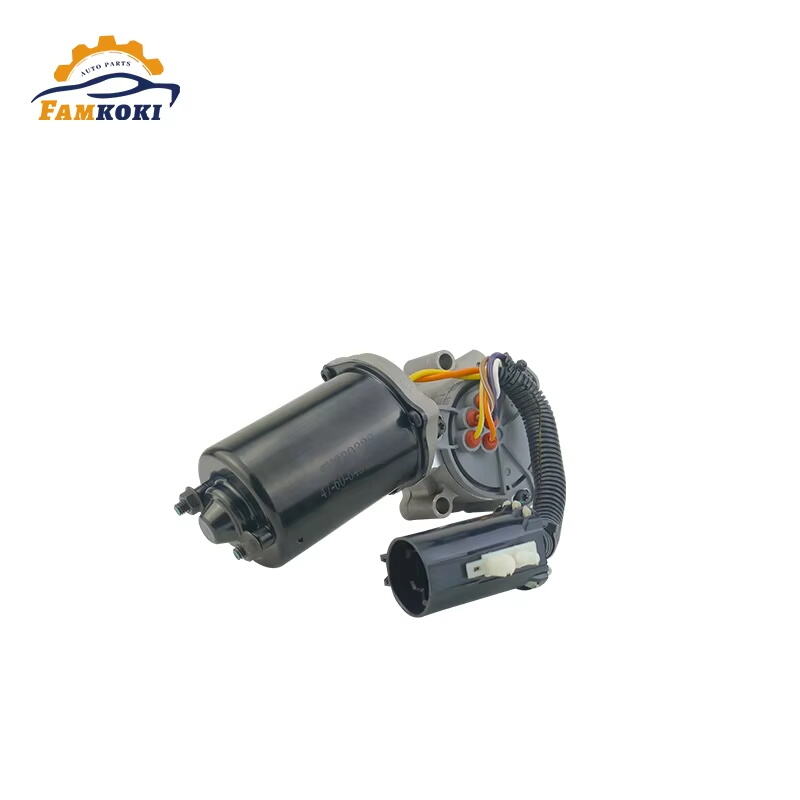Introduction: The Vital Role of Auto Parts in Modern Vehicles
Understanding the Interconnected Nature of Performance, Safety, and Efficiency
There are parts that the vehicle of yours will not have the opportunity to do without. Quality components enable vehicles to ride on shakes and bumps with a refined ride, giving the driver great ride control, and a feeling of comfort and confidence. And, these parts are vital to safety. Designed to protect from security issues and provide innovative driver conveniences, their products build consumer confidence with high-quality brake parts important to protect family and others from the hazards of the road. In addition, high performance auto parts play a major part in improving the fuel mileage. Beyond the job specific performance level, they contribute to environmental sustainability, an issue that is growing in relevance in today's society, thanks to the higher fuel mileage and lower emissions.
How Component Quality Directly Impacts Driving Experience
Top-grade auto parts are what you need to enjoy the most of your vehicle. Take, for example, the premium shocks and suspension used to create smoother driving and eliminating noise, affecting how your vehicle feels on the road. Studies indicate that cars fitted with better quality parts resell at higher prices thus it plays an important role in purchasing better quality auto part for a smooth and better performance of the vehicle. Deficient parts can cause early breakdowns, shorter life spans, and even dangerous events, such as car accidents. The importance of using solid, well-made replacement parts cannot be overstated – these components play a critical role in a car's long-term safety and durability, and should not be compromised on, regardless of cost.
Auto Parts and Vehicle Performance Optimization
Engine Components: Power Generation and Transmission Efficiency
The engine system elements have a significant impact on the vehicle performance, it affects the fuel consumption and power generation. Strong engine construction materials lead to an increase in horsepower and torque. For example, parts like fuel injectors, and pistons contribute to acceleration and throttle response, giving the most effective fuel mileage at speed. Technologies like turbocharging and direct injection help increase power without hurting fuel economy. To learn more about engine parts, look at recent trends in the auto parts industry.
Suspension Systems: Balancing Comfort and Handling
Ride and handling depend on the suspension system, which is the link between the road and the body of the car. Some of the most advanced suspension technologies can even make real-time modifications to the handling, to best suit the road ahead - whether it's a bumpy road or a tight corner. Quality suspension parts also reduce stressors on linked car components, resulting in better car lifespan. Comfort and handling in your ride The impact of the suspension system on your ride. Look into Suspension Systems for more information.
Transmission Innovations for Seamless Power Delivery
Advanced transmission systems, such as Continuously Variable Transmissions (CVTs) and dual-clutch systems, bring the technology of how power is distributed also to an extremely high-performance level—and this translates to better acceleration and fuel efficiency. These advancements guarantee smooth power flow while reducing engine load and maximising drivetrain efficiency. Efforts to improve transmission technology also have made gear shifts more immediate, resulting in a smoother, more intuitive driving experience. To see how improvements in transmission systems help cars gain new capabilities, you can look closer at the problems that need to be solved by the trusty car part that is also a modern marvel: the car parts engineering.
Safety Systems: How Auto Parts Protect Lives
Brake System Evolution: From ABS to Electronic Stability Control
The improvements on brake system are awesome in car safety.commensurate with the other measures to minimize the risk of vehicular accidents. Anti-lock braking system (ABS) became a major breakthrough (assuring vehicle to remain in control during hard braking without wheel lock-up). Modern brake systems also have progressed with electronic stability control, which helps the vehicle keep its stability on slippery surfaces. This infusion of high-tech technology has made all the difference, studies have shown vehicles with this technology are far less likely to wreck.
Airbag Technology and Collision Detection Systems
Since they have been credited with saving lives through the prevention of deaths from vehicle accidents, airbags have arguably become equivalent to safety in vehicles. While originally passive safety equipment, airbags have increasingly integrated complex algorithms to trigger when and where needed. Air bags are enhanced in their life saving role by collision detection systems that predict collisions via sensors and take evasive action to reduce harm. Literature also proves a beneficial effect on injury claims, comparing vehicles with and without such technologies (van Keulen and Karsten 2010). This shows how playing with auto parts can make you safe in way we can only dream of.
Advanced Driver-Assistance Systems (ADAS) in Modern Vehicles
ADAS Advanced Driver-Assistance Systems (ADAS) are the game changer for vehicle safety by utilizing the automotive parts to make lane-keeping assistance, adaptive cruise control etc as reliable and consistent features. Safe driving habits are enforced by ADAS, and they cause the situation of accidents to be rare. Statistics testify this fact, since a lower rate of road accidents has been linked to adopting ADAS. The ongoing development of such systems highlights the significance of technology in the field of vehicle safety with a movement towards intelligent and active safety systems in the latest vehicles.
Fuel Efficiency Through Intelligent Auto Part Design
Aerodynamic Components and Drag Reduction
Aerodynamic parts like spoilers and diffusers can make a huge difference in a vehicle's fuel consumption. For example, the Journal of Automotive Engineering re-ported that small changes to the aerodynamics of a vehicle can greatly impact miles per gallon. This is testament to the key role these elements play in contemporary automotive design. A lot of resources are spent by companies to optimise the shapes of their vehicles in wind tunnels etc... to reduce air resistance and therefore help the fuel economy.
Lightweight Materials in Modern Manufacturing
Utilization of light weight materials such as carbon fiber and aluminum is transforming automotive production and cutting vehicle weight and enhancing fuel economy. Studies have shown that when a vehicle loses 100 pounds in weight it can result in a 1-2% fuel efficiency improvement. T his growing trend is now following in the footsteps of the automotive industry, where manufacturers have to come up with lighter designs, avoiding any trade-off between weight savings and safety/performance. By taking advantage of these materials, the industry is inching toward fuel-efficient cars and not losing altitude on durability, an attribute that weighs heavily in consumer purchasing decisions.
Engine Management Systems for Optimal Combustion
Computerized engine control systems are also significant in maximizing fuel delivery and ignition timing, these are crucial in improving efficiency. Such systems use a combination of sensor data to maximize engine performance across different scenarios. Recent studies have indicated that an efficient control of the engine can result in a significant reduction in fuel consumption, making engine management a fundamental part of the development of modem vehicles. This breakthrough illustrates the industy's commitment to decreased fuel use with no reduction in performance and opens up the door to smart auto part design which is part of both and improved environmental footprint.
FAQ
Why are high-quality auto parts important for vehicles?
High-quality auto parts are crucial because they enhance vehicle performance, ensure a smoother driving experience, and improve safety by reducing the risk of component failure.
How do advanced braking systems improve vehicle safety?
Advanced braking systems such as ABS and electronic stability control help maintain vehicle control during hard braking and on slippery surfaces, reducing the risk of accidents.
What role do lightweight materials play in modern car manufacturing?
Lightweight materials like carbon fiber and aluminum reduce vehicle weight, leading to increased fuel efficiency and improved performance without compromising safety.
How do aerodynamic components enhance vehicle fuel efficiency?
Aerodynamic components reduce drag, which optimizes fuel economy by allowing vehicles to move more efficiently through the air.
What is the significance of engine management systems?
Engine management systems optimize fuel injection and ignition timing, improving engine efficiency and leading to better fuel economy and performance.
 EN
EN
 AR
AR
 FR
FR
 KO
KO
 PT
PT
 RU
RU
 ES
ES


